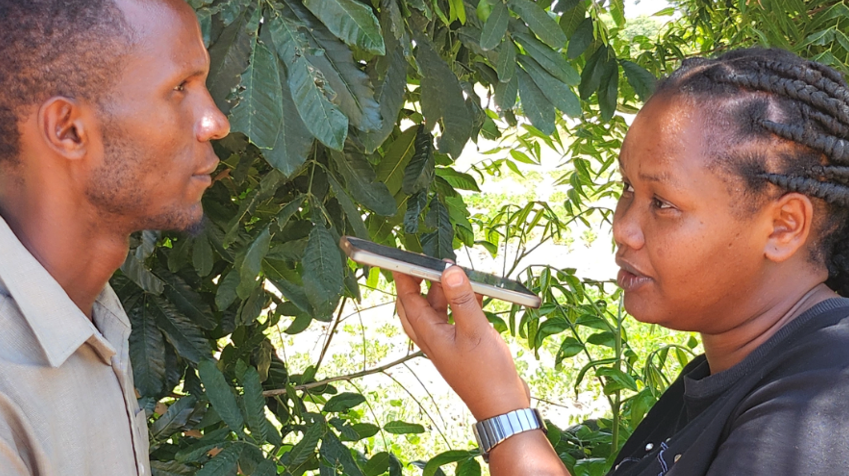Intimate partner violence (IPV) is a major global health challenge that harms many dimensions of women’s well-being. IPV can increase women’s risk of depression and other health problems including HIV and substance abuse, and adversely affects their economic status. While 30% of women worldwide experience either sexual or physical IPV in their lifetimes, in Ethiopia that figure is a staggering 70%.
Unite for a Better Life (UBL) is an IPV prevention project recently implemented in rural Ethiopia. Meetings take the form of an Ethiopian coffee ceremony, a culturally established forum for community discussion and conflict resolution, and led by trained facilitators from participating communities. The program consists of 14 sessions conducted twice weekly.
Since underlying gender equalities are often key drivers of IPV, UBL emphasizes the harmful impacts of gender norms that reinforce men’s power over women. Topics range from gender-sensitive modules on joint decision-making, division of household labor, and healthy communication to more IPV-specific sessions on HIV prevention, condom use, sexual consent, and nonviolent conflict resolution.
In a recent pair of studies, we evaluated the varying effects of the UBL intervention in different formats—delivered to men only, women only, and couples—in a cluster randomized controlled trial conducted in 64 Ethiopian villages. The program had a range of positive effects on intimate partner violence and gender norms—particularly among the men-only and couples’ groups—suggesting that this strategy has promise in low-income and rural areas.
Before the UBL sessions began, men and women from randomly sampled households were surveyed on recent experiences of IPV (women were asked whether they had experienced IPV in the last 12 months; men were asked whether they had perpetrated it), attitudes towards gender roles, knowledge of HIV risk factors, patterns of substance use (for men only), and symptoms of depression (for women only) as part of a baseline study. The households were then randomly assigned to receive one of the UBL programs or to a comparison group that would attend a single short IPV information session. Two years later, they were surveyed again and key outcomes were compared across the different groups.
Among the men’s, women’s, and couples’ UBL groups, only the men’s UBL intervention significantly reduced IPV. Men in that group reported lower odds of perpetrating sexual IPV compared to men in the control group, and their partners were also less likely to report experiencing sexual IPV. However, no reductions in physical IPV were reported—except among men who were highly exposed to the program, completing at least 12 of 14 sessions. In these households, both sexual and physical IPV significantly decreased.
The couples’ UBL intervention also showed promise. Two years after participating, couples’ condom use increased; women’s comprehensive HIV knowledge improved; HIV risk behaviors were reduced; and participants reported more equitable household task-sharing and decision-making. Some of these effects were also observed in the men’s and women’s arms.
In some areas, however, the intervention was less effective. None of the intervention groups reduced men’s substance use; men consumed less alcohol after participating, but reported corresponding increases in their use of khat (a stimulant popular in Ethiopia). Women’s mental health, meanwhile, showed no improvements in any group. Women’s depression symptoms remained constant in the men’s and couple’s groups; in the women’s group, moderate depression appeared to have increased.
These findings suggest that UBL was effective in improving a number of IPV and HIV outcomes, and highlight the benefit of working with men. The research also suggests that more work may need to be done for these changes to lead to improvements in women’s mental health. For example, more specialized content addressing substance use and mental health may be beneficial.
Perspectives from the beneficiary groups are overwhelmingly positive. Roughly 95% of individuals who participated in the program reported a high level of satisfaction with UBL, and most of the participants reported that they shared information they learned from the program with at least one other person. Participants also reported solid retention rates; around 50% of surveyed participants reported that they had retained most or all of the material presented in the intervention two years later. Given the high attendance rates across all types of UBL groups, UBL implementation lessons have been documented and shared.
This evaluation is unique for several reasons. Past studies evaluating IPV interventions have often focused on programs targeting women, even though male engagement is increasing recognized as an important strategy for IPV prevention. By systematically comparing delivery of the UBL program to groups with different compositions, we were able to demonstrate the differential impacts among men, women, and couples.
Qualitative data collected from group facilitators highlights the importance of the male-only UBL groups as providing a safe space for men to reflect on, and discuss, IPV. One facilitator noted that in the male group, “a man who was very violent toward his wife provided emotional testimony and communicated how sorry he was for his actions. The majority of men were sharing their emotions, and this in itself was proof of how much they had changed.”
Many interventions that target gender norms are implemented in areas with higher income and education levels than rural Ethiopia, where the majority of UBL participants had no formal education. The fact that the program was still effective in changing gender norms surrounding household decision-making and housework demonstrates the potential for similar interventions in low-income, low-education areas. In addition, UBL sought to systematically leverage a cultural practice—the coffee ceremony—as an entry point for challenging conversations around gender roles and IPV. Future programs could use similar strategies.
Moving forward, this project suggests an important research agenda on engaging men in reducing IPV and addressing the challenges posed by traditional gender roles. Interventions that more directly engage men in this process of change are clearly promising, but more must be done to understand the mechanisms through which such approaches lead to change and how to make them more effective.
Vandana Sharma is a Global Health Researcher at the Harvard T.H. Chan School of Public Health; Negussie Deyessa is an Associate Professor at the Addis Ababa University College of Health Sciences; Jessica Leight is a Research Fellow with IFPRI’s Poverty, Health, and Nutrition Division; Timothy Karoff is an IFPRI Communications Intern.
This work was in conducted in collaboration with the Abdul Latif Jameel Poverty Action Lab and EngenderHealth, and was supported by an anonymous donor and the Fondation de France.







